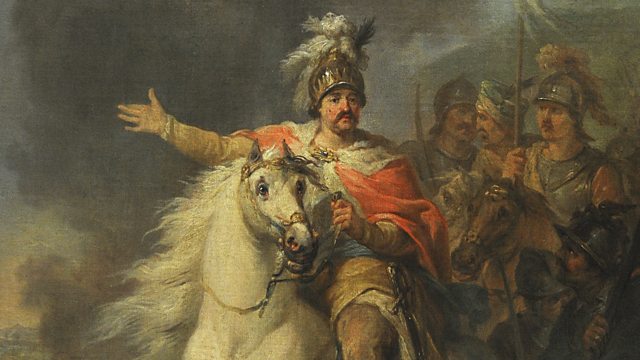
The Polish-Lithuanian Commonwealth (Summer Repeat)
Melvyn Bragg and guests discuss the rise and fall of the largest republic in Europe, which for centuries elected its kings to rule alongside parliament and avoided religious wars.
Melvyn Bragg and guests discuss the republic that emerged from the union of the Kingdom of Poland and Grand Duchy of Lithuania in the 14th Century. At first this was a personal union, similar to that of James I and VI in Britain, but this was formalised in 1569 into a vast republic, stretching from the Baltic to the Black Sea. Kings and princes from across Europe would compete for parliament to elect them King and Grand Duke, and the greatest power lay with the parliaments. When the system worked well, the Commonwealth was a powerhouse, and it was their leader Jan Sobieski who relieved the siege of Vienna in 1683, defeating the Ottomans. Its neighbours exploited its parliament's need for unanimity, though, and this contributed to its downfall. Austria, Russia and Prussia divided its territory between them from 1772, before the new, smaller states only emerged in the 20th Century. The image above is Jan III Sobieski (1629-1696), King of Poland and Grand Duke of Lithuania, at the Battle of Vienna 1683, by Marcello Bacciarelli (1731-1818) With Robert Frost The Burnett Fletcher Chair of History at the University of Aberdeen Katarzyna Kosior Lecturer in Early Modern History at Northumbria University And Norman Davies Professor Emeritus in History and Honorary Fellow of St Antony鈥檚 College, University of Oxford Producer: Simon Tillotson
In Our Time podcasts
Download programmes from the huge In Our Time archive.
The In Our Time Listeners' Top 10
If you鈥檙e new to In Our Time, this is a good place to start.
Arts and Ideas podcast
Download the best of Radio 3's Free Thinking programme.
Podcast
-
![]()
In Our Time
Melvyn Bragg and guests discuss the ideas, people and events that have shaped our world.

